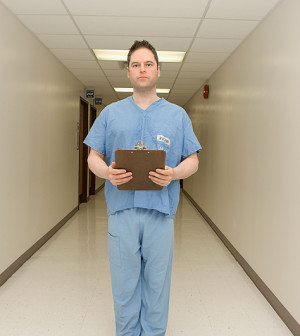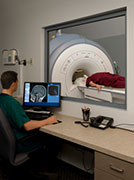- 7 Best Breads for Maintaining Stable Blood Sugar
- Gelatin vs. Collagen: Which is Best for Skin, Nails, and Joints?
- The Long-Term Effects of Daily Turmeric Supplements on Liver Health
- Could Your Grocery Store Meat Be Causing Recurring UTIs?
- Are You Making This Expensive Thermostat Error This Winter?
- Recognizing the Signs of Hypothyroidism
- 10 Strategies to Overcome Insomnia
- Could Artificial Sweeteners Be Aging the Brain Faster?
- Techniques for Soothing Your Nervous System
- Does the Water in Your House Smell Funny? Here’s Why
Cell Damage Occurs When People Have CT Scans: Study


Cellular damage occurs when people undergo CT scans, but whether or not this causes cancer or any other health problems is unclear, a new study finds.
“The use of medical imaging for heart disease has exploded in the past decade,” study senior author Dr. Joseph Wu, director of the Stanford Cardiovascular Institute, said in a Stanford news release.
“These tests expose patients to a non-trivial amount of low-dose radiation,” Wu added. “But nobody really knows exactly what this low-dose radiation does to the patient. We now have the technology that allows us to look at very subtle, cell-level changes.”
In the study, Wu’s team examined the blood of 67 people before and after they had undergone a heart CT scan.
After the scans, the research did show an increase in DNA damage in cells, as well as cell death. There was also increased expression of genes involved in the repair or death of cells, the study found.
Most cells damaged by the CT scan were repaired, the researchers said, but a small percentage of them died.
The bottom line: “We now know that even exposure to small amounts of radiation from [CT] scanning is associated with cellular damage,” study co-lead author Dr. Patricia Nguyen, an assistant professor of cardiovascular medicine at Stanford University School of Medicine, said in the university news release.
However, she added that it’s still not clear from this study whether or not this causes cancer or any negative effect to the patient. The findings should encourage physicians to use CT scan dose-reduction strategies, Nguyen said.
The study didn’t find any DNA damage in healthy people who were of average weight who had the lowest doses of radiation during their CT scans.
Still, the Stanford team noted that a CT scan exposes patients to at least 150 times the amount of radiation from a single chest X-ray. And in 2007, the U.S. National Cancer Institute predicted that 29,000 future cancer cases could be linked to the 72 million CT scans performed in the country that year alone.
One expert said the study prompts concerns, but it can’t provide definitive answers about cancer risk.
“This study raises the possibility that a routinely performed cardiac procedure may cause future cancer — cells that cannot repair or eliminate DNA damage, known as a mutation, may go on to develop into a cancerous tumor,” explained Dr. Lucy Langer, an oncologist with Compass Oncology in Portland, Ore., part of the US Oncology Network.
“However, this study does not demonstrate or attempt to link radiation-induced DNA damage to the development of future cancers,” she said. In the meantime, the findings support the notion that “care should be taken to adhere to minimizing radiation exposure whenever possible,” Langer said.
Nguyen agreed. “We need to learn more because it’s not a benign effect, even at these low dosages,” she said. “Our research supports the idea that maybe physicians shouldn’t just use the best image quality [requiring higher doses] in all cases.
“We shouldn’t eliminate CT scans,” she said, “because they’re obviously important. But, you can make it safer by reducing the doses, by getting better machines and technology, and by giving patients something to protect them.”
The study was published online July 22 in the Journal of the American College of Cardiology: Cardiovascular Imaging.
More information
The U.S. National Library of Medicine has more about diagnostic imaging.
Source: HealthDay
Copyright © 2026 HealthDay. All rights reserved.










